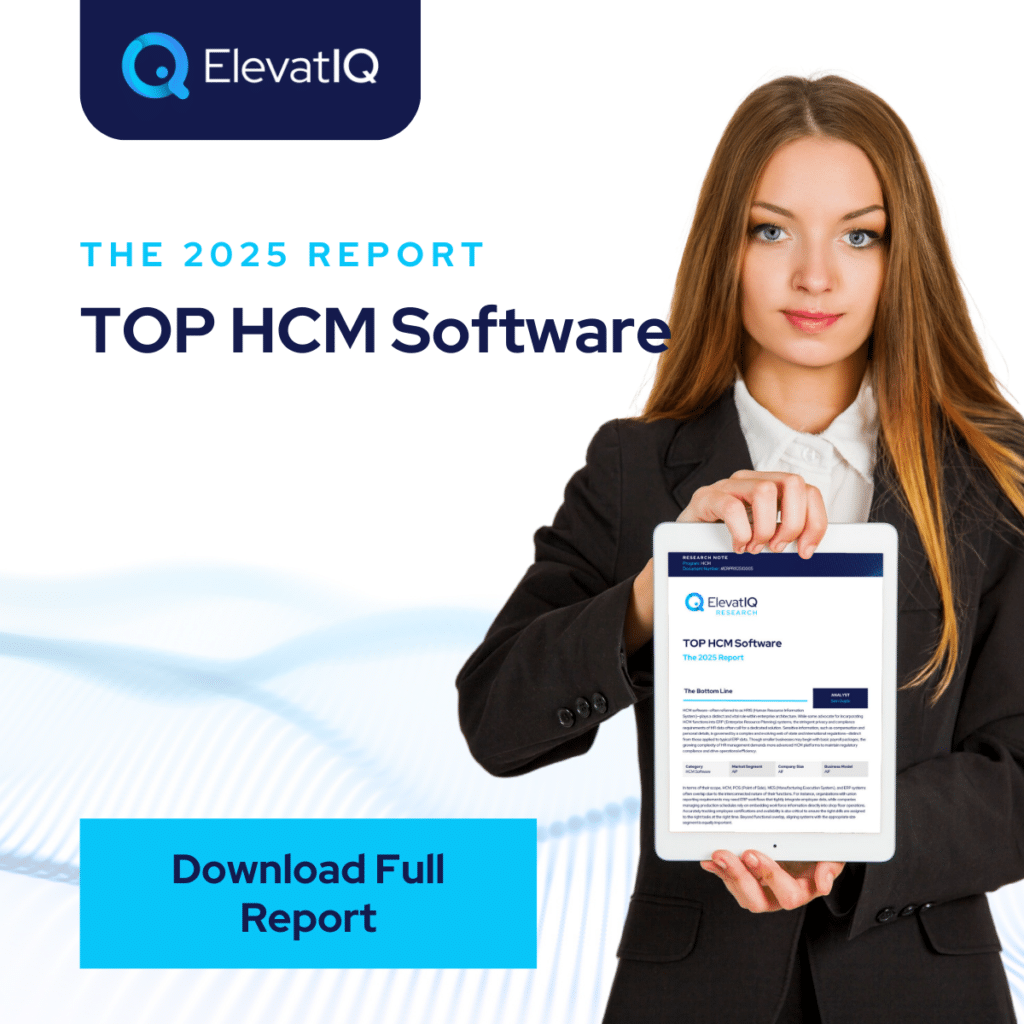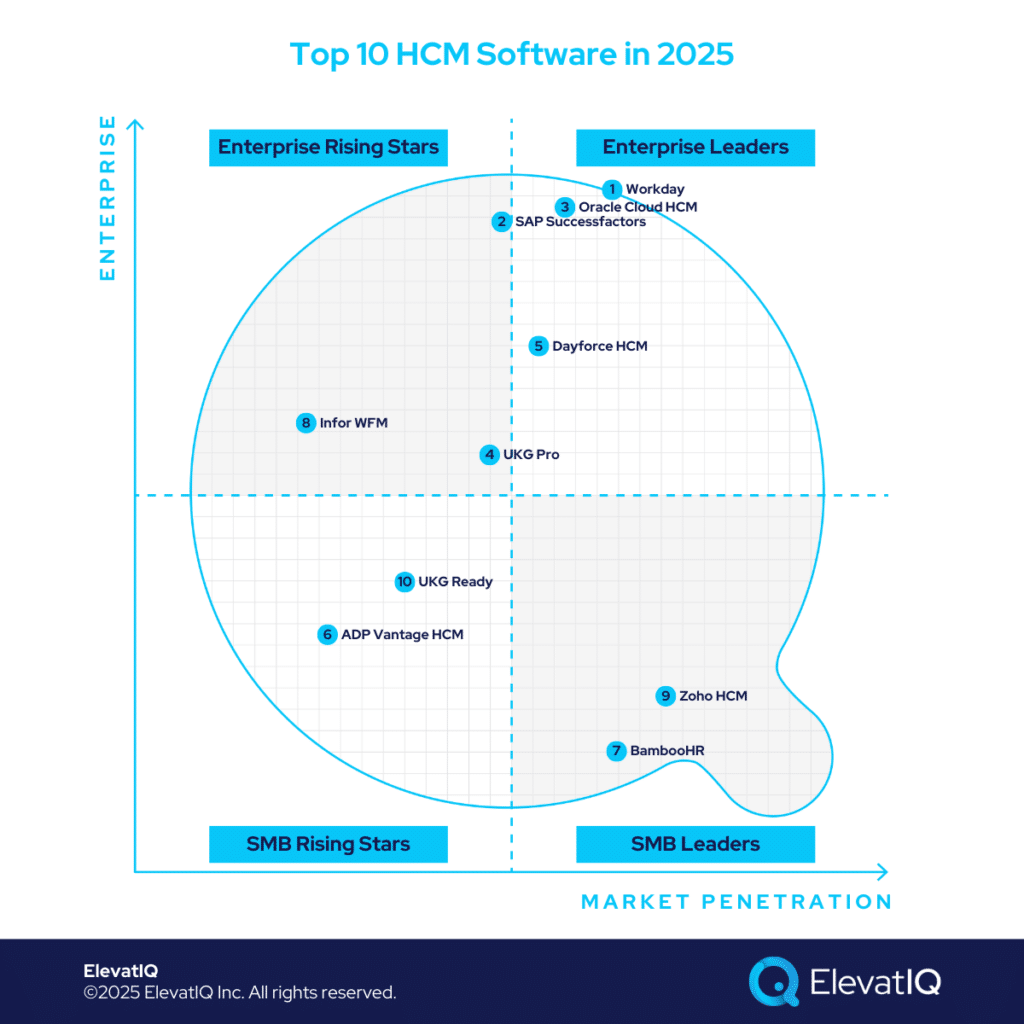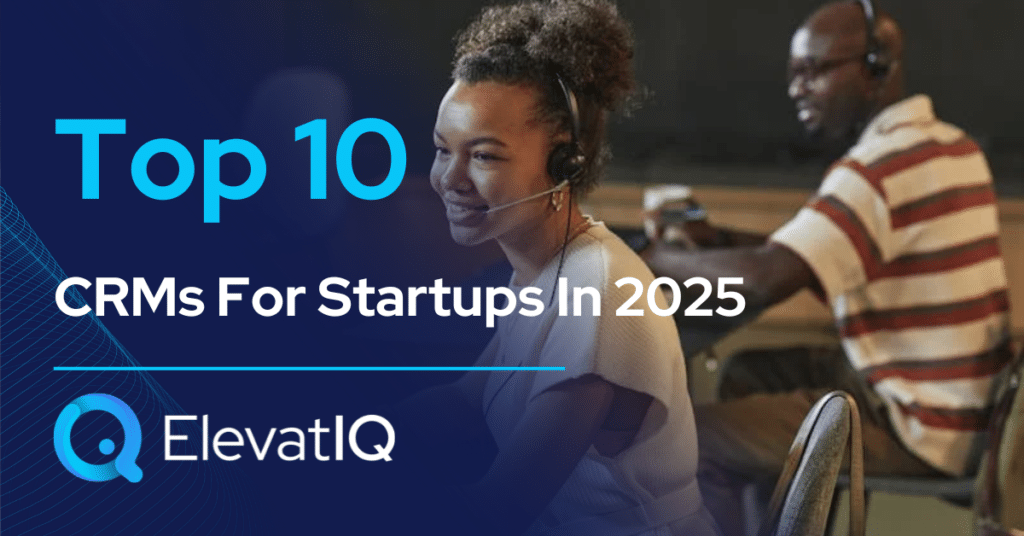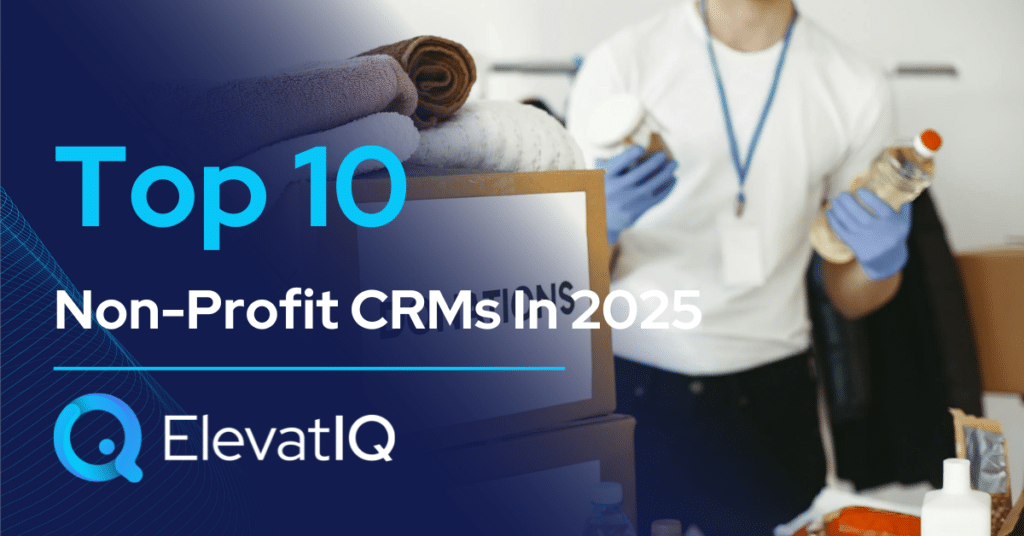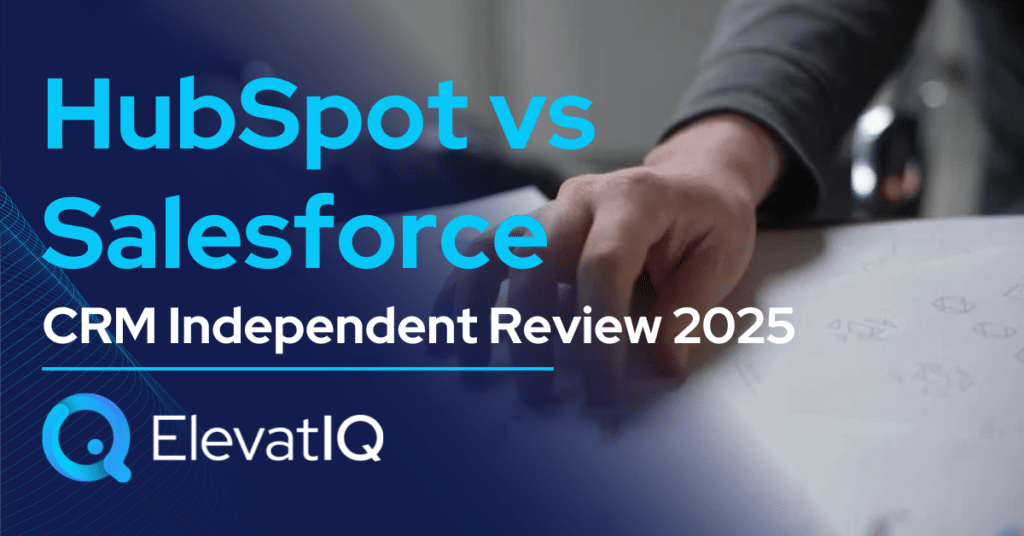Last Updated on April 20, 2025 by Sam Gupta
The HCM market is generally divided into three segments based on company size: (1) organizations with up to 100 employees, (2) those with 100 to 1,000 employees, and (3) enterprises with over 1,000 employees. Each segment has distinct needs, and HCM solutions are typically tailored to reflect those requirements. For smaller companies—those with fewer than 100 employees—simplicity is key. These organizations often prefer solutions that are easy to implement without the need for consulting support, favoring a DIY deployment model. Such platforms prioritize user experience, often featuring flatter data structures and minimizing complex hierarchies to reduce implementation friction.
The next tier of HCM solutions adopts a suite-centric approach, often paired with managed services. In the mid-market segment, managed services are especially critical, as most organizations lack the resources to monitor and stay compliant with the complex and ever-changing labor laws across multiple counties, states (or provinces), and countries. Managed services are also a key differentiator for solution providers, allowing them to demonstrate more value compared to their larger peers.
Larger solutions offer a broader range of technical capabilities to support diverse compensation structures, labor profiles, and business models. However, they may not be as user-friendly or easy to implement, as they prioritize data integrity—an essential factor for large companies focused on enhancing HR operational efficiency and minimizing administrative overhead. While mid-market solutions often include localizations for multiple countries, their vendor partner ecosystem tends to be less robust, limiting consulting options.
Selecting an unsuitable HCM software that is not tailored to your industry can impact your enterprise architecture. This list aims to outline the pros and cons of the leading HCM software options available in the market.
10. UKG Ready
UKG offers two main HCM products tailored to different business sizes. It is built for small to mid-sized organizations, with a focus on ease of use and lower implementation costs. It stands out by offering managed services and better reporting capabilities compared to many entry-level products. While not ideal for very small startups, it provides a middle ground between lightweight platforms like BambooHR and more complex systems like Workday. UKG Ready also supports global operations, with coverage across over 85 countries.
Is your business looking for simplicity without giving up reporting power? Do you need a global HCM system, or are you managing a U.S.-focused workforce? How important is ease of implementation versus advanced features like succession planning? Understanding where UKG fits in the HCM landscape is key to being successful with this product. For a deeper look at how it compares to other platforms, download the Top HCM Software in 2025 report now.
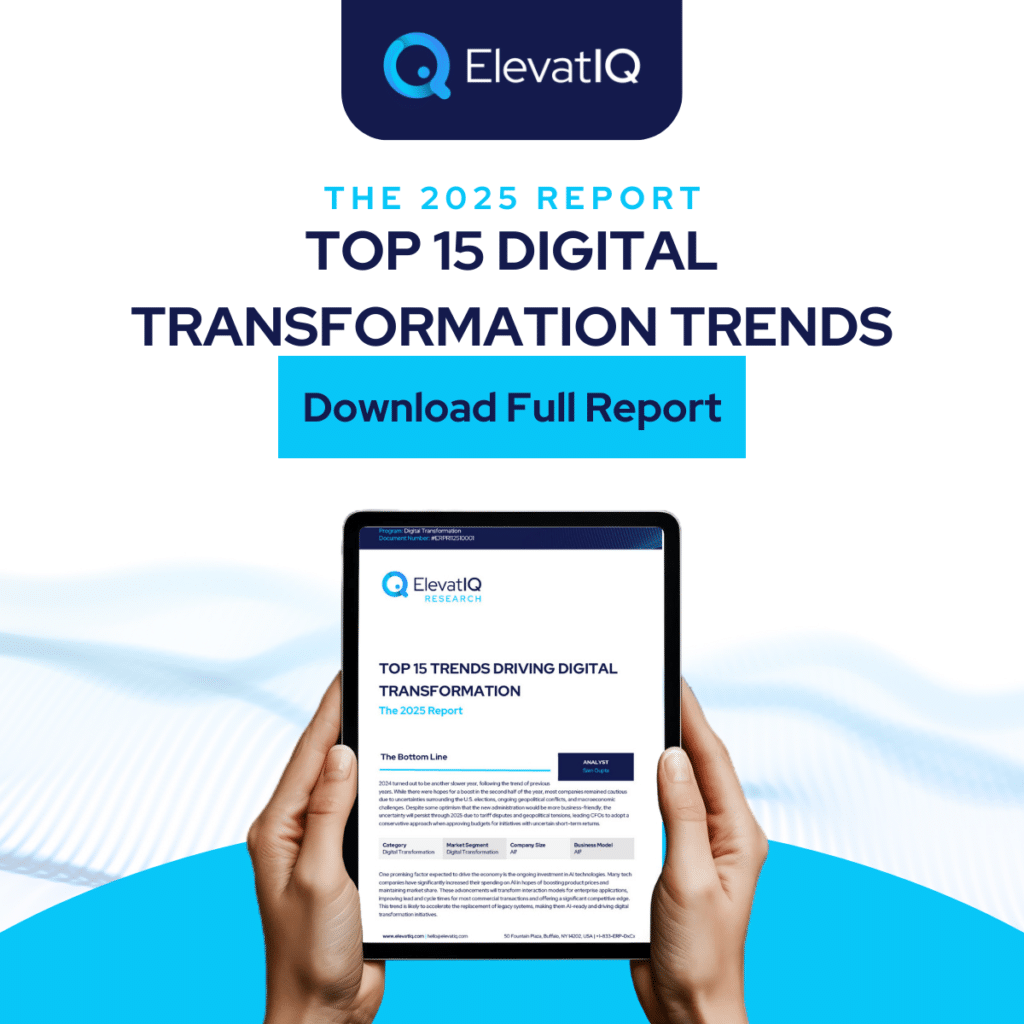
9. Zoho HCM
Zoho HCM serves SMBs across industries like IT, education, media, and finance. It works especially well for companies already using other Zoho products. One of its biggest strengths is its bundled pricing. You get access to multiple apps for the price of just one from other vendors. The platform also supports advanced features, including complex benefits rules and employee type management—features not always found in mid-market solutions.
Are you already using Zoho apps and considering expanding into HCM? Do you need more robust recruiting and workflow tools without jumping to a full enterprise solution? How important are managed services and global payroll support in your decision? Zoho HCM may be a good fit if your needs include strong recruiting capabilities and customization flexibility. For a full breakdown of where it stands in 2025, download the Top HCM Software in 2025 report now.
8. Infor WFM
Infor WFM targets industries that need strong scheduling features, especially healthcare and retail. It supports complex compensation setups and works well for managing branch-level operations. However, its overall HCM suite is not as broad as some competitors. To fill those gaps, companies often need third-party tools. It’s a solid choice for enterprises already using other Infor products, but not ideal for smaller businesses or organizations needing an all-in-one HCM.
Does your organization require tightly integrated scheduling within your HR system? Are you in healthcare or a similar field where staffing rules are complex? How important is having managed services bundled with your HCM platform? If your answers lean toward niche workflows and deep scheduling needs, Infor WFM might be the right fit. For a full look at how it ranks and where it shines, download the Top HCM Software in 2025 report now.
7. BambooHR
BambooHR is built for small to mid-sized businesses with straightforward HR needs. It offers a simple setup, which keeps implementation quick and cost-effective. Its easy-to-use interface supports tasks like onboarding, training, and document management. However, it relies on partners for managed services and may lack the depth some businesses need. While great for startups, it doesn’t offer robust reporting or built-in tools for more advanced functions like time tracking.
Is your team looking for a lightweight HCM that’s easy to adopt? Are advanced reporting or built-in time tracking essential to your workflows? Would you prefer a system that reduces your reliance on consultants? If your priorities align with simplicity and fast deployment, BambooHR might be a strong match. To compare BambooHR with other top platforms, download the Top HCM Software in 2025 report now.
6. ADP Vantage HCM
ADP Vantage is built for large enterprises needing a full suite of HR, payroll, and workforce management tools. It’s especially valuable for companies already using ADP payroll, with strong support for complex org structures. Its real strength is in payroll and benefits administration—so much so that even other vendors rely on ADP for these functions. However, the platform’s modular history can lead to a fragmented user experience and added complexity during setup and integration.
Are you managing a large workforce and need a system with strong payroll capabilities? Do you already use ADP services and want tighter integration? Or are you weighing the trade-off between robust functionality and ease of use? For a deeper look at how ADP Vantage compares to other top HCM platforms, download the Top HCM Software in 2025 report now.
5. Dayforce HCM (Previously Ceridian)
Dayforce is one of the few HCM platforms that caters to both SMBs and large enterprises. While it started in the SMB space, it now supports organizations with tens of thousands of users. It may not match the scale of legacy enterprise systems, but its modern design and faster deployment make it attractive for companies wanting to avoid lengthy implementations. Dayforce is particularly strong in payroll, WFM, and benefits—especially for companies using Microsoft ERP systems.
Is your business in a sector where scheduling and compliance are critical? Are you using Microsoft ERP and looking for a more complete HCM experience? Does your team need strong payroll tools but not managed services? If so, Dayforce might be worth a closer look. Download the Top HCM Software in 2025 report now to explore how Dayforce compares to other leading platforms.
4. UKG Pro
UKG Pro serves mid-sized and enterprise organizations. It strikes a balance between broad features and ease of use. Managed services are a key part of its value, helping companies without large HR teams manage compliance and labor regulations across borders. Pre-built integrations speed up deployments and reduce the need for custom setups.
Do you need support for complex workflows without the heavy lift of a traditional enterprise system? Are you looking for a platform with strong global capabilities and built-in regulatory tools? Do managed services matter to your HR team? If so, download the Top HCM Software in 2025 report now to see how UKG Pro stacks up against other top platforms.

3. Oracle Cloud HCM
Oracle Cloud HCM targets large enterprises. It supports complex org structures, approvals, and global compliance. Industries like tech, telecom, and healthcare benefit most—especially those already using Oracle ERP. Its native integration offers value but can increase costs and complexity, particularly where tight HCM-ERP alignment is a must.
Does your organization need advanced support for compensation models and large-scale workflows? Do you already rely on Oracle for other business systems? Are you equipped with the IT resources to manage a high-touch platform? If so, download the Top HCM Software in 2025 report now to see how Oracle Cloud HCM compares across enterprise needs.
2. SuccessFactors
SAP SuccessFactors HXM Suite caters to large, global companies. It supports high volumes, complex business models, and multiple geographies. With support for 43 languages and more than 45 localizations, it meets the needs of multinational workforces. Like Oracle Cloud HCM, it may require a strong IT team and consulting support, especially when configuring workflows or compliance processes.
Does your company operate across many regions with complex HR needs? Do you need industry-specific extensions or plan to integrate with other SAP tools? Are you ready to invest in a platform that brings deep localization and enterprise-grade functionality? Download the Top HCM Software in 2025 report now to see how SuccessFactors stacks up against leading HCM platforms.
1. Workday
Workday remains a top choice for large enterprises. It offers strong tools for managing complex HR processes. Its architecture is modern, and the interface is easy to navigate. However, Workday adoption in the mid-market has been slower. Many mid-sized companies prefer platforms with bundled managed services, which Workday doesn’t offer directly. Without strong IT support, mid-sized firms often struggle during implementation.
Is your organization dealing with complex compensation or benefits workflows? Do you need a scalable solution that integrates with tools like Salesforce or ServiceNow? Are you prepared for the technical depth Workday demands? Download the Top HCM Software in 2025 report now to see how Workday compares to other leading platforms.
Final Words
Due to differences in labor laws across regions, choosing and implementing HCM products requires specialized expertise. HCM workflows are often closely integrated with ERP, MES, and Service Scheduling modules. As a result, selecting the right HCM software can significantly impact the overall enterprise architecture and affect operational efficiency.
When integrating HCM software into your system architecture, it’s important to define the roles and responsibilities of each system interacting with the HCM software. This guide will help you narrow down options that best align with your architectural requirements.
Download the Full Report
